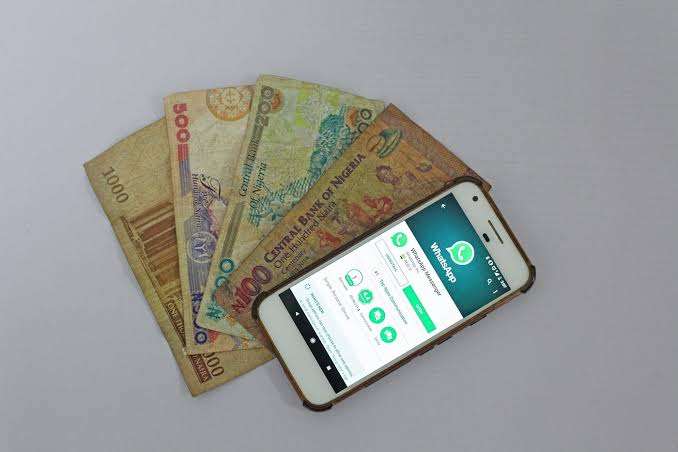As mobile banking adoption continues to grow across Nigeria, a new AI WhatsApp banking chatbot is making money transactions as simple as texting a friend.
The new tool, called Xara, was launched in June this year by Nigerian software engineer Sulaiman Adewale, and is already recording rapid uptake.
According to Adewale, the product allows users to send money, pay bills, and manage expenses entirely through WhatsApp.
“I wanted an easier way that carries everybody along in banking, and if you look at it properly, you will see that WhatsApp is what even the oldest people among us use,” Adewale told TechCabal.
What is Xara?
Unlike traditional banking apps, Xara is powered by a multimodal large language model, the same kind of generative AI that underpins tools like ChatGPT. But it’s fine-tuned with open-source data to suit Nigerian users, Adewale said.
According to him, Xara currently supports English and Nigerian Pidgin, with development underway to integrate Hausa and Yoruba.
Users initiate financial tasks by simply chatting with the bot on WhatsApp. For instance, typing “Send ₦10,000 to Abubakar for breakfast” prompts a confirmation and triggers the transaction.
“We have focused on just pidgin and English, but we are currently working on it to make it even understand our local languages like Hausa and Yoruba,” Adewale added.
Onboarding, Transactions, and Partnerships
According to the team, to use Xara, users save the bot’s WhatsApp number, go through onboarding, and receive a virtual account number issued by 9 Payment Service Bank (9PSB).
Xara then links this to a user’s funding source, allowing money transfers and bill payments within chat.
In its first two weeks, Xara has already onboarded 10,000 users and processed over ₦135 million ($88,200) in transactions, according to Adewale. However, a spike in demand forced the team to temporarily halt new signups while expanding backend partnerships.
Privacy, Security, and Compliance
Adewale insists that user safety is central to Xara’s design. The platform relies on WhatsApp’s end-to-end encryption to keep conversations private. It also includes a 4-digit authentication PIN for transaction approvals and encourages device-level protections like Face ID or chat locks.
“We don’t retain those personal banking details ourselves; the only data we log is related to payment transactions, just for tracking and resolution purposes, if any issues arise,” he said.
In case of a lost phone or WhatsApp breach, according to Adewale, users can contact customer service to freeze their Xara account. Recovery requires identity verification before the account is reinstated.
“For extra security, we advise users to lock their WhatsApp using Face ID or a password, or even lock their chats with the AI to keep transactions private.”
What are the Numbers?
Despite progress, over 28 million Nigerians remain financially excluded, according to the Central Bank of Nigeria (CBN). Experts cite these individuals lack access to basic services like savings, transfers, or utility payments.
Financial analysts say Xara’s use of WhatsApp, which functions on low-end smartphones and in areas with poor connectivity, could play a key role in bringing more people into the financial system.
Adewale shares a similar vision. While the company is focused on Nigeria for now, he said there are plans to expand Xara to other African markets where WhatsApp dominates digital communication and financial access remains limited.
For many industry experts, Xara joins Nigeria’s crowded fintech landscape with a different approach, focusing on accessibility, simplicity, and voice-enabled commands.
Its closest competitor, according to Adewale, is Owo, a WhatsApp-based AI tool developed by fintech infrastructure provider Mono.
Future Outlook
Beyond transfers and bill payments, Adewale says Xara is set to introduce a wider range of services in the coming months, including savings plans, e-commerce support, logistics integration, and even AI-powered recommendations.
“We are still working on integrating additional services like savings plans, utility payment, and even e-commerce and logistics, like telling it to order food for you, and it will still do,” Adewale said.
If successful, analysts say Xara may represent a new model for banking, where familiar platforms, powered by locally trained AI, become the primary gateway to formal financial services.
Talking Points
It is bold and innovative that Xara is spearheading AI WhatsApp Banking, a platform already deeply embedded in the lives of millions of Nigerians.
This approach positions Xara as a financial companion that mirrors how Nigerians already communicate. Its support for Pidgin and plans for local languages like Hausa and Yoruba make it especially inclusive and culturally relevant.
At Techparley, we see how this kind of embedded banking could redefine how financial services are delivered, bridging formal systems with informal behaviours, and accelerating financial inclusion across low-income and digitally excluded communities.
Xara’s reliance on multimodal AI, including speech recognition tuned to Nigerian accents, shows real localisation. Its use of WhatsApp’s end-to-end encryption and optional PINs reflects a thoughtful approach to data security and user trust.
However, for long-term success, Xara must address key scaling challenges, including payment infrastructure, regulatory clarity, and trust-building. Strategic partnerships with major banks and telcos could help stabilise its backend and extend its reach.
With continued localisation, strong regulatory alignment, and support for users with low digital literacy, Xara could become more than a chatbot. It could emerge as one of the most practical tools for banking the unbanked in Africa.





